Definition
Impacted wisdom teeth is a tooth that gets blocked aWs it pushes through the gum into your mouth. Wisdom teeth (also called “third molars”) usually do not push through the gums until people are in their late teens, twenties or even older. Wisdom teeth are usually the last teeth to come through the gums. Most people have four wisdom teeth. Some people have none. Often, there is little space at the rear of the jaws for wisdom teeth to come easily through the gums. If the jaw does not have enough room for the wisdom tooth to come through, the tooth will become wedged in or “impacted”. Some impacted wisdom teeth remain buried and cause no trouble. However, other impacted wisdom teeth may cause severe problems. If one or more of your wisdom teeth become troublesome, your oral surgeon may recommend that they be removed.
History
Wisdom teeth have been described in the ancient texts of Plato and Hippocrates. “Teeth of wisdom” being from the Latin, dentes sapientiæ, which in turn is derived from the Hippocratic term, sophronisteres, from the Greek sophron, meaning prudent.
Charles Darwin believed the wisdom teeth to be in decline with evolution which his contemporary, Paolo Mantegazza, later proved to be false when he discovered Darwin was not opening the jawbones of specimens to find the impacted tooth stuck in the jaw.
In the late 19th and early 20th centuries, the collision of sterile technique, anaesthesia and radiology made routine surgery on the wisdom teeth possible. John Tomes’s 1873 text A System of Dental Surgery describes techniques for removal of “third molars, or dentes sapientiæ” including descriptions of inferior alveolar nerve injury, jaw fracture and pupil dilation after opium is placed in the socket. Other texts from about this time speculate on their deevolution, that they are prone to decay and discussion on whether or not they lead to crowding of the other teeth.
Impacted wisdom teeth
Epidemiology
Few studies have looked at the percentage of the time wisdom teeth are present or the rate of wisdom teeth eruption. The lack of up to five teeth (excluding third molars, i.e. wisdom teeth) is termed hypodontia. Missing third molars occur in 9-30% of studied populations.
One large scale study on a group of young adults in New Zealand showed 95.6% had at least 1 wisdom tooth with an eruption rate of 15% in the maxilla and 20% in the mandible. Another study on 5000 army recruits found 10,767 impacted wisdom teeth. The frequency of impacted lower third molars has been found to be 72% and the frequency of retained impacted wisdom teeth that are free of disease and symptoms is estimated at 11.6% to 29% which drops with age.
The incidence of wisdom tooth removal was estimated to be 4 per 1000 person years in England and Wales prior to the 2000 NICE guidelines.
Types of impactions
Dentists use a number of terms, in combination, to describe the positioning of impacted teeth. They are mesial, distal, horizontal, vertical, soft-tissue and bony
a) Mesial, vertical, horizontal and distal
These terms are used to refer to the general angulation (positioning) of the tooth.
- The term “Mesial” (also mesio-angular) means that the tooth is angled forward, toward the front of the mouth. This is the most common type of wisdom tooth impaction.
The other types of impactions, in order of frequency of occurrence, are the vertical, horizontal, and distal types.
- Vertical impactions have a relatively normal orientation.
- Horizontal (also traverse) impactions have an alignment where the tooth is lying on its side.
- A Distal (also disto-angular) impaction has an angulation that is generally directed towards the rear of the mouth.
b) Soft-tissue and bony wisdom tooth impactions
In combination with the classifications above, wisdom teeth are also categorized as soft tissue or bony impactions.
- A “soft tissue” impaction is one where the upper portion of a wisdom tooth (the tooth’s crown) has penetrated through the bone but has not yet fully erupted through the gum tissue.
- The term “bony” or “hard tissue” impaction indicates that the tooth still lies primarily within the jawbone. A full-bony impaction is entirely encased by bone tissue, whereas a partial-bony one has erupted through it somewhat.
Causes of Impacted wisdom teeth
- The reason why some wisdom teeth are impacted is not an easy question to answer. A primary cause simply seems to be a condition of inadequate jawbone space behind a person’s second molar.
- Why this lack of space exists is not fully understood. There does, however, seem to be a correlation between large tooth size and/or the presence of generalized tooth crowding and having impacted wisdom teeth.
Impacted wisdom teeth symptoms
- Bad breath
- Difficulty opening the mouth (occasionally)
- Pain or tenderness of the gums (gingiva) or jaw bone
- Prolonged headache or jaw ache
- Redness and swelling of the gums around the impacted tooth
- Swollen lymph nodes of the neck (occasionally)
- Unpleasant taste when biting down on or near the area
- Visible gap where a tooth did not emerge
Complications caused by Impacted wisdom teeth
Infection
When an impacted tooth starts to push through the gum, an infection can start around the top of the tooth. Infection and inflammation (swollen, red gums) can cause pain, swelling, and jaw stiffness. Swallowing may be painful. The patient may feel generally unwell. The infection can cause bad breath and an unpleasant taste.
Pain
Pressure from the wisdom tooth may cause pain in the tooth next to it. Pain can also be caused by infection around the wisdom tooth, as shown above.
Ulcer
An upper wisdom tooth may push sideways out of the gum. It may cause an ulcer where it rubs against the inside of the cheek.
A food trap
Food becomes trapped between the wisdom tooth and the molar next to it. This can cause cavities in both teeth.
Cysts
In rare cases, a sac of fluid called a cyst can form around the wisdom tooth. The cyst can dissolve bone and damage other teeth and the gums.
Diagnosis and test
Your dentist or oral surgeon can evaluate your teeth and mouth to determine if you have impacted wisdom teeth or if another condition is causing your problems. Such evaluations typically include:
- Questions about your dental symptoms and general health
- An examination of the condition of your teeth and gums
- Dental X-rays that can reveal the presence of impacted teeth, as well as signs of damage to teeth or bone
Treatment and medications
You may be advised to rinse your mouth often with a warm saltwater mouthwash. Use one teaspoon of salt in a glass of warm water. The water should be warm as possible, but not too hot. Your surgeon may also suggest an antiseptic mouthwash and a pain killer. Your surgeon may prescribe antibiotics. Tell your surgeon if you have ever had an allergic reaction to any antibiotics or other drugs. Take the complete course of antibiotics.
The Decision To Remove Teeth
After inspecting your mouth, jaws and X-Ray films, your surgeon can discuss the diagnosis with you. Your surgeon may recommend removal of one or more wisdom teeth, or other options. If the area around the tooth has been infected, your surgeon may decide to delay surgery while the infection is treated. Even though a wisdom tooth may cause problems, it may “settle down” after it pushes through the gum. While impacted wisdom teeth may cause problems, some never cause trouble and may not need to be removed. The decision to have wisdom teeth removed is always yours. If you are uncertain about your surgeon’s advice or diagnosis, you may wish to seek the opinion of another surgeon.
Early Removal of Wisdom Teeth
It is best to have troublesome wisdom teeth removed while the person is young. In young people, a tooth‘s roots have not formed totally, and the bone surrounding the tooth is softer. This allows easier removal of the tooth, and there is less risk of damage to nerves, bone or other teeth. Your surgeon may recommend early removal of one or more wisdom teeth for the following reasons:
- There is not enough room for the tooth to push through.
- You need orthodontic treatment, and the remaining teeth must not be crowded by wisdom teeth.
- When the tooth has started to cause trouble. It should be removed soon so the pain, infection or other problems do not get worse. As the molar develops a root, its involvement with a nerve of the jaw can cause postoperative complications.
- Adjacent molars need to be protected from the impacted wisdom tooth.
Medicines
Give your surgeon a list of all medicines you are taking now or have been taking recently. This includes the “Pill”, blood thinners such as warfarin, and any over-the-counter medicines, such as aspirin or cough medicines. Tell your surgeon if you have ever had any type of allergic or bad reaction to antibiotics or any other medicine.
Pregnancy
Tell your surgeon if you are or may be pregnant. This could affect your treatment including:
- X-ray examination
- Anaesthesia
- Pain treatment
- Antibiotic drugs and other medicines
- Whether removal of a wisdom tooth should be delayed.
Prevention of Impacted wisdom teeth
You can’t keep an impaction from occurring, but keeping regular six-month dental appointments for cleaning and checkups enables your dentist to monitor the growth and emergence of your wisdom teeth. Regularly updated dental X-rays may indicate impacted wisdom teeth before any symptoms develop.
 Diseases Treatments Dictionary This is complete solution to read all diseases treatments Which covers Prevention, Causes, Symptoms, Medical Terms, Drugs, Prescription, Natural Remedies with cures and Treatments. Most of the common diseases were listed in names, split with categories.
Diseases Treatments Dictionary This is complete solution to read all diseases treatments Which covers Prevention, Causes, Symptoms, Medical Terms, Drugs, Prescription, Natural Remedies with cures and Treatments. Most of the common diseases were listed in names, split with categories.

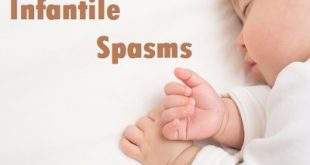
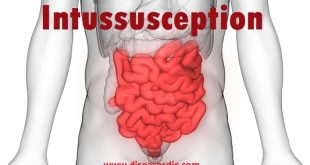
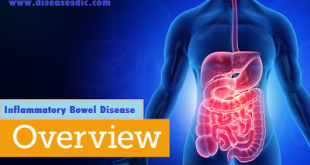
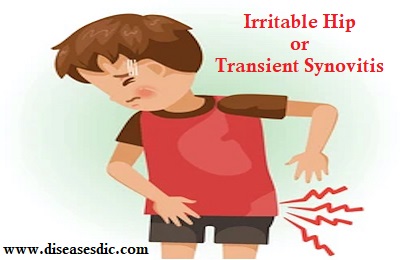

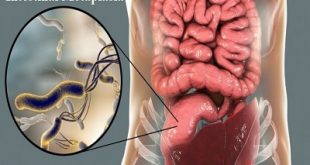

If someone is unto the Age of thirty, can he or she still have this wisdom teeth
Yes they will have. but after age 30, some study shows that wisdom teeth will be prone to disease problems.
so insightful to bread
great work…
I had exactly what I read about the wisdom teeth and it was removed successfully with up to 7injections on my gum.Am comfortable now, no need of chewing several mentor gum or fluoride every time again.
homeopathi medicine for dental pain
Yes mam, some doctors prefer homeopathy medicines frequently. some of those are listed below.
Arnica : is the major remedy in dentistry- give it to patients routinely before and after treatment Plantago Q: Great remedy for tooth sensitivity and early pulp exposure, follow it up with Staph for long term relief
Silica for pus in gums or swellings
Chamomila for kids teething problems
Cheiranthus cheiri Q for wisdom teeth eruption problems
Borax for mouth ulcers, Nitric acid also is useful
Nux vomica is indicated for children who vomit before going to the dentist.
Ruta and or Hypericum and Causticum is tremendously helpful in implant surgery, particularly when the bone is surgically prepared for the implant.
Myristica is an absolutely magical remedy – instead of antibiotics
Hepar sulph will quickly bring relief. It must be potency 6c for absess
Ferr phos – for bleeding problems, phosphorus also works very well
Symphytum – bone injuries or teeth extraction. Severe pains, better from rest.
Hypericum – used for wounds without bruising. Generally for mechanical punctures or nerve injuries from dental instruments.
Ruta graveolens – periosteum (bone covering) injuries. Mouthwashes of Salvia Q (sage) infusions several times a day diminish some of the pain in Dry socket
Carbo veg 30, Symphytum 200 for loose teeth due to perio problems
Silicea – Use to hasten the discharge when pus is draining.
Mercurius Vivus helps treat excess salivation.
Stramonium removes metallic taste from the mouth.
Plantago helps with toothaches and tooth sensitivity.
Hekla Lava and Mercurius Vivus help with tooth decay and swelling- esp periapical cysts/abscess. In dental abscess other useful medicines are Fluoric acid, Silicea, Mercurius, Gun Powder and Hepar sulph
Calcium Phos removes pain in the jaws or other bone pains
Kali Phos is good for receded, bleeding gums
Calcium Fluoride brings about a remineralization of the enamel
Arnica is very useful berore and after surgery.
very useful..
Thanks..
I have horizontal teeth impact but my dentist make rct on second last teeth on both side this time i have no problem what is the future of this solution plz suggest any medicine in homeopathy and precaution for this. Plz suggest me
Removing the wisdom teeth by surgery is the final cure. Medicines are used only for relieving the pain sensations.
Two front lower jaw teeth are shaking and there are sore around them at the same time it is painful.
Please consult a doctor.
I have lower lip and chin numbness after wisdom teeth extraction please help
Please consult a dentist as soon as possible.
This information has really helped me,though I suffer from this impactions currently growth under the lower front jaws and new your advice ASAP.
Please consult a doctor for better results.
the teeth is giving me much problem. i can’t sleep even eat.
Please consult a dentist to diagnose the root cause of the pain and get appropriate treatment.